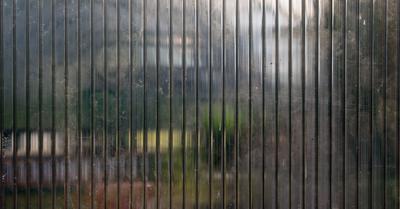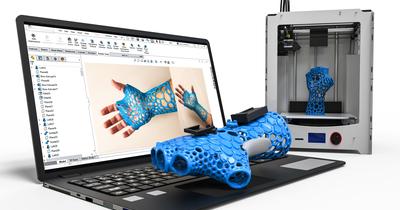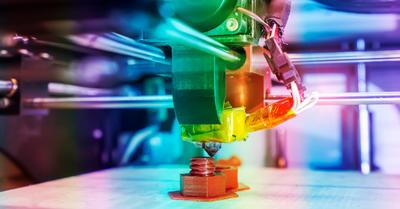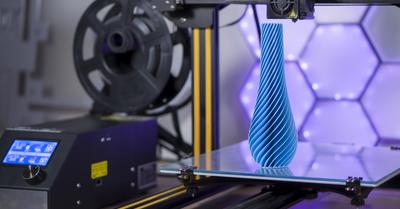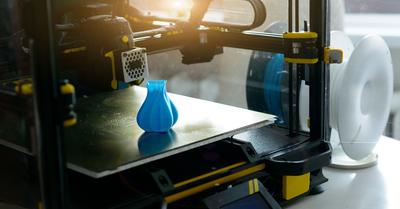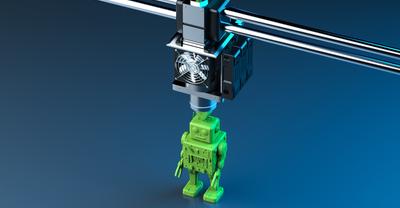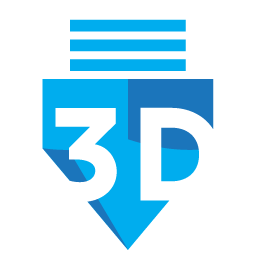How Long Does It Take to Learn 3D Printing?
While not necessarily difficult, there is a lot to learn and keep track of in 3D printing that is often overlooked by those just starting out. The two major obstacles for beginners are design and proper setup. Knowledge of design software is required in order to create your own 3D designs and learning how to fix problems with your printer can often be frustrating.
Design Software for a 3D Printer
Learning how to translate ideas in your head to concrete designs on a computer often constitutes the largest time investment for those looking to start 3D printing.
3D design isn’t the same as your run-of-the-mill image editing, like in MS Paint or Photoshop. There’s a whole new spatial dimension to deal with, which necessitates a new way of thinking when approaching a design. That being said, prior experience in 2D design software will likely ease the transition into 3D design more so than starting for scratch.
But before you can even start constructing a design, you must learn how to navigate your way around the design software. This will be new to both design amateurs and experts, so it is wise to take time before picking which software to use to avoid having to relearn everything in the future.
If you dedicate the time and effort, you could be creating simple 3D designs within a month. But don’t be surprised if it takes more than a year or before more complex designs start emerging.
Common 3D printing design software includes:
· Blender
· Fusion 360
· FreeCad
· Sketchup
Proper Setup
If you find yourself uninterested in the design side of 3D printing, you’ll be delighted to know that there are tons of downloadable files containing designs that can easily be sent to your 3D printer with just a few clicks. But looks can be deceiving.
3D printing technology has been around since the 1980s. Despite this, 3D printers are still host to a myriad of technical problems that can easily frustrate even the most seasoned veterans.
Things like proper axis alignment, bed leveling, and checking for damaged filament are not likely in the forefront of the mind of a beginner. But all of these are required before any printing can occur, so it’s important to take the time to learn how to do them properly and remember to do them often.
There’s nothing worse than setting a print to run overnight only to find it incomplete in the morning. Time spent troubleshooting these issues can quickly add up, though it becomes easier with increased experience.
Is 3D Printing Even Worth Learning?
3D printing mainly exists today in the form of a niche hobby. With all the time and effort that comes with it, you should have a clear goal in mind before starting in this field to avoid becoming discouraged.
Express Your Creativity in 3D
3D printing is widely used as a creative tool, a modern substitute for sculpture in bringing physical art to the three-dimensional world. Across the internet you can find examples of this in geometric design, mythical creatures, and famous landmarks, to name a few.
Learning 3D printing can be extremely fulfilling as a creative outlet, as you can see your ideas and designs come to life before your very eyes.
Functionality of Owning Your Own 3D Printer
A common 3D printing scenario is as follows:
You’ve just discovered that your washing machine is broken, and you know the exact piece that needs replacement. You now have to call the manufacturer and have them go through all the channels to ship you a spare part. In a 3D printing world, you could go to the company’s website, download the part, and print it in a few hours.
It is clear to see the advantages that quick, simple, and accessible part manufacture can be to the average consumer. While there are few clear-cut applications of 3D printers today, there exist untold numbers of tools and parts available for download.
As of now, 3D printing is not widely utilized in the manufacturing sector, comprising only 2% of all manufacturing. But if it can solve some of its impediments, 3D printing stands to revolutionize production. With that comes an influx of new jobs utilizing 3D printing skills, such as design, modeling, and education.
What Is Needed for 3D Printing?
To begin 3D printing, you obviously need to purchase a 3D printer. You will also need a computer. If you just plan on downloading pre-made files and printing, any computer with a reasonable internet connection will do.
3D design will require much more in terms of computing performance. Minimum specs for such a computer include 8 GB of memory and a CPU with a high clock speed, while the optimal experience requires 16 GB of memory and a dedicated graphics card alongside the CPU.
Once you secure your 3D printer, you’ll need a material to print, similar to how a normal printer needs ink. Some of the beauty of 3D printing is that it allows you to print with a wide variety of materials, such as ABS, carbon fiber, and nylon. 3D printers take these materials in the form of filament. Each material is suited to a specific purpose, so research is a necessity before deciding on which is right for your project.
Whether or not you plan on creating your own designs, it is helpful to know where to find 3D design files. Some of the most well-known sites include:
How Much Do 3D Printers Cost?
3D printers can range from a low of $200 for entry level up to$100,000 for industrial use. If you are a beginner, you should be looking to spend around $200-$500 for a printer. Some commonly recommended models are:
These printers are more than capable for someone learning the basics of 3D printing. However, quality issues and a small build area lead many to pursue more high-end models. These typically range from $1500-$4000.
The two types of 3D printers are FDM and SLA. To print, FDM melts down filament in order to form it, then allows it to cool and harden. On the contrary, SLA printers use a liquid resin to print, then hardens it with UV light. SLA printers are typically reserved for use by enthusiasts; aside from a more expensive printer, the resin material is also more costly. However, the print quality found in SLA printers far surpasses that of FDM.
The price of filament depends on what type of material you want to print. ABS can usually be found at around $25/kg, while nylon can go for$95/kg. When purchasing a 3D printer, it is important to take note on what filaments are allowed to be used. Some printer manufacturers require you to buy their proprietary filament, which is often more expensive those made by a third-party. Luckily, open-source printers have no such re
